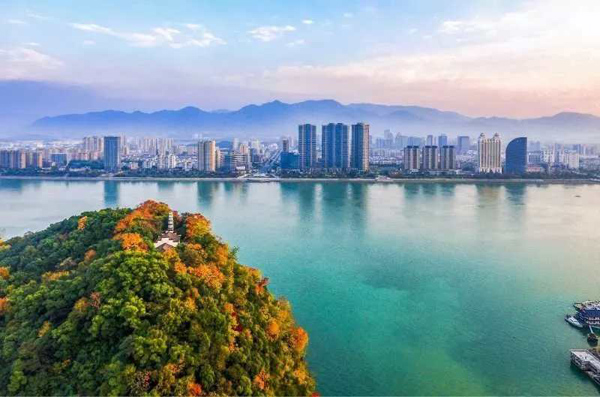Hangzhou paints lucid waters and lush mountains

86.7 percent of rivers in Tonglu reach the top two classes of the five national water quality standards. [Photo provided to ehangzhou.gov.cn]
August 15 marks the 15th anniversary of the "Two Mountains" theory, which states that "lucid waters and lush mountains are invaluable assets".
Fifteen years on, Hangzhou, the capital of East China's Zhejiang province, has created its own landscape of ecological civilization by protecting the environment, seeking green development, and improving people's living standards.
Protecting the environment
The scenes 10 years ago of rivers being polluted by domestic sewage and foul smells, and pests filling up the surrounding environment are still vivid in Huanxi villager Zhou Mingzhen's mind.
"No one wanted to visit our village then, and the pathways along the brooks were also 'unchartered' areas," Zhou said.
To solve environmental issues in rural areas, the local government was inspired by constructed wetlands and built idle lands into sewage treatment ponds, which can work together to purify wastewater, green villages, and improve the environment.
By the end of 2016, Hangzhou had become the first city in Zhejiang province to apply sewage treatment facilities in all its rural areas. The city is planning to fulfill an improvement program by the end of 2020 and have all 9,148 wastewater disposal terminals interconnected.

 Print
Print Mail
Mail
 Zhejiang Release
Zhejiang Release Zhejiang News
Zhejiang News